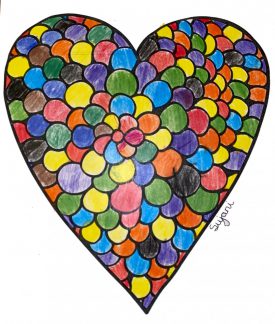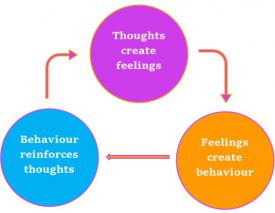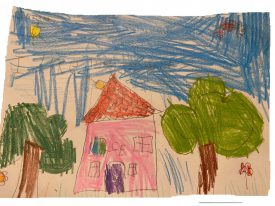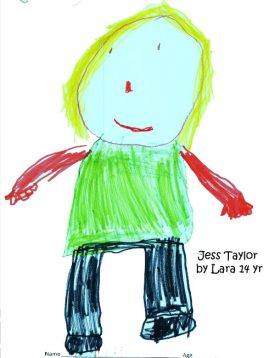 Rotherham Child and Adolescent Mental Health Service (CAMHS) offers a range of psychological therapies for children aged 5-18 years old and their families. Referrals for therapy are made following an assessment by other CAMHS staff and discussion with the child/young person and their family. Unfortunately, there is a waiting list but families will be supported by other staff within CAMHS/other agencies whilst they are waiting. There are also some online resources in the ‘Useful Links’ section of this website that may be helpful.
Rotherham Child and Adolescent Mental Health Service (CAMHS) offers a range of psychological therapies for children aged 5-18 years old and their families. Referrals for therapy are made following an assessment by other CAMHS staff and discussion with the child/young person and their family. Unfortunately, there is a waiting list but families will be supported by other staff within CAMHS/other agencies whilst they are waiting. There are also some online resources in the ‘Useful Links’ section of this website that may be helpful.
The Psychological Therapy pathway is able to offer therapeutic interventions based on a range of approaches including Compassion Focussed Therapy, Cognitive Behavioural Therapy , Cognitive Analytic Therapy, Art Therapy, Family Therapy and Child Psychotherapy. These may be offered on their own or with another approach depending on the needs of the child and family, their preferences and clinical guidance and the available evidence base. There are several different staffs within the pathway e.g. Clinical Psychologists and therapists trained in specific kinds of therapies. More information on the different staff within CAMHS can be found in the Our People section of this website. There is further information below about the different approaches we may draw on in our therapeutic interventions:
Compassion Focussed Therapy
A therapy developed to help people with issues of shame and self-criticism. It helps people to learn how to experience kindness and acceptance towards themselves and others, and to feel safe and capable in a world that can seem overwhelming. Compassion Focussed Therapy is a good approach to working with trauma, anger, worry, pain and depression, particularly where shame or self-criticism is present.
Cognitive Behavioural Therapy

A therapy that supports a child or family to work on their difficulties by learning about the connections between thoughts, behaviours and physical/body responses and the impact these can have on feelings.
Family Therapy
- Systemic/Family Therapy When one member of a family has a difficulty, it tends to impact on everyone in the family. Often, solving a problem or difficulty for a child or young person requires support from family members.
- Family therapy is a therapy that helps families work together to improve relationships and support each other in finding solutions to problems and can be offered by a Family Therapist working alone or in conjunction with a reflecting team. A systemic approach can also be offered for individuals working 1to1 with a Family Therapist.
- Narrative therapy, a way of working with people to understand our lives as being made up of the stories we tell of ourselves and are that are told about us. This approach has a strong focus on power and on the young person or family finding ways to amplify the stories they would prefer for themselves
Child Psychotherapy

A psychotherapist will help a child or young person to understand and manage difficult feelings by meeting regularly with them and developing a safe, stable relationship in which they can explore those feelings. Sometimes another clinician will offer parent support work alongside the individual work with the young person. Engaging with parents and carers to support the young person’s therapy and emotional development can greatly improve the long-term effectiveness of any therapy offered.
Art Psychotherapy
Art therapists use the artwork created by children and young people as a focus for a therapeutic conversation to understand together a young person’s worries, memories, fears etc. Art Psychotherapy doesn’t rely on spoken language so it can be helpful for young people who have difficulty in expressing their thoughts and feelings verbally or for when experiences are simply too difficult to put into words.
Cognitive Analytic Therapy

Cognitive Analytic Therapy is about understanding relationships with yourself and others. It’s based on cognitive-behavioural and psychodynamic models and looks at the way a young person thinks, feels, and acts and how this relates to experiences they have had and the ways they react to other people. Cognitive Analytic Therapy can help with a wide range of difficulties in which interpersonal dynamics are a key feature, for example: depression, anxiety or low self-esteem, self-harm, self-defeating behaviours or feeling repeatedly let down, hurt or rejected.
Dyadic Developmental Psychotherapy
A relationship-based approach which draws on attachment theory. It involves creating a safe setting in which the child/young person can begin to explore, resolve and integrate a wide range of memories, emotions and current experiences that are frightening, shameful, avoided or denied. The focus is on discussing recent difficult situations and understanding them in the context of the young person’s past history and consequent beliefs about self, others and the world. DDP usually involves the young person’s parent/carer who may initially take a back seat but as therapy progresses becomes more like a co-therapist.
Eye Movement Desensitisation and Reprocessing
Eye Movement Desensitisation and Reprocessing was originally developed for processing traumatic memories causing Post Traumatic Stress Disorder type symptoms but can also be used for anticipatory anxiety, phobias, pain, nightmares. Eye Movement Desensitisation and Reprocessing usually requires the young person to hold a traumatic memory in mind whilst processing takes place using bilateral stimulation – this is usually eye movements but can also involve tapping or sounds.